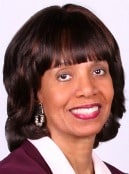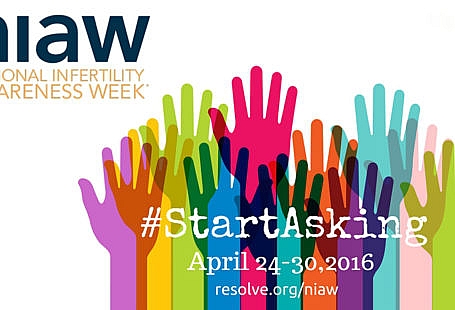
“How to Prepare for Death” image via Pixabay, CC public domain
One step at a time is the best way to start preparing for death. Here are several emotional, practical, and spiritual ways to prepare for death, from eldercare consultant and hospice volunteer Frances Shani Parker. Her insights on dying are actually tips on living fully, madly, deeply!
“I have never feared death or an afterlife,” says Frances. “My own death plans are in order. Being around dying people has made me a more patient listener, proactive problem solver, prolific writer, and introspective thinker. Volunteering with the dying has made me a better person who is more in touch with who I am and why I am here.”
She adds that many people live in denial and have a great deal of fear about dying, but when they finally accept their approaching death, they generally adjust well. The most surprising thing I learned from Frances is that people living in nursing homes may have multiple roommates. “Imagine preparing for death – or actively dying – and sharing a room with someone with advanced dementia who may have imaginary guests, being in a bed next to a roommate who is immobile or unable to speak, or hearing the regular moans of someone in the final stages of cancer,” she says. “In addition to their own issues, some patients experienced a combination of these occurrences in their rooms.”
Preparing for Death – Insights From a Hospice Volunteer
Your environment affects your death. Frances says that an environment with high staff turnover can add an uncomfortable level of adjustments to new faces, personalities, and behaviors in terms of services, particularly if staff inservices were not ongoing. Some dying patients need more vigilant advocacy and support from loved ones – and this affects how they died. She supports quality care wherever hospice care is given.
Many people consider end of life care at home for loved ones, because quality hospice care may not be available – or it may be too expensive.
Hospice and hospital reform is on the horizon. “Fortunately, there is a growing culture change movement across the country to make nursing homes more person-centered in meeting needs of residents and staff,” says Frances. “As millions of baby boomers (born between 1946 and 1964) experience deaths of their older loved ones and their own aging, I am optimistic that reform will continue to take place in improving quality of life for the dying, especially in urban areas.”

When preparing for death, expect a variety of responses from relatives. I know this is true from my own sister’s response to our dying aunt’s request for a visit. My sister refused to go see her, because she was afraid and anxious about seeing my aunt struggle with a terminal illness. Frances says, “What might surprise some people is that close relatives and friends vary greatly in their commitment to being involved in caregiver support, regardless of their relationships with the dying person.” Some relatives might step up and become proactive with assistance, others look for excuses not to give time or even show up to visit the dying person regularly. This is especially true when the dying person has dementia and doesn’t recognize them. If you’re preparing for death, be aware that the emotional response to a dying family member may be unexpected and intense.
Preparing for your death is as important as preparing for any life event. Since death is an inevitable life event, you should plan for in advance, just like you plan for other major events in your life. Only a third of Americans actually prepare for death. “Too many people end up being forced to confront their dying concerns during a crisis,” she says. “Many die and leave the burden of their neglected plans for others to do.”
Death preparations should include:
- Discussions with loved ones about death wishes
- Documentation regarding end-of-life healthcare, such as an enduring power of attorney
- The appointment of a consenting healthcare proxy to make medical decisions
- Written plans, including a will, distribution of property, a death ritual if desired, and disposal of the body
- Communication with organizations such as AARP, Area Agencies on Aging, hospitals and hospice organizations who can offer resources and assistance
Preparing your death can actually be enjoyable. For some people, it’s empowering, interesting, and creative to make additional plans for your funeral, memorial, or celebration of life – such as learning how to decorate your coffin or where to look at handcrafted cremation urns.
“Years before my mother died, she had her funeral wishes written with the obituary, songs, speakers, Bible verses, and her arrangements for burial followed by a catered reception,” says Frances. “Because all of her children had copies of her plans, she checked with us periodically through the years to make sure we were prepared and rehearsing our Bible verses.”
She adds that some dying patients she worked with had their funeral attire selected in advance. One patient said she couldn’t die until her children finished getting her house in proper order for guests to visit after her funeral. “All of this forethought increased the likelihood that the deceased person’s wishes would be carried out, and that loved ones wouldn’t be confused or in conflict while scrambling to do what they assumed the deceased might have wanted,” she says. Sometimes, heated discussions about what the deceased person’s desires might have been can cause hard feelings that are never resolved – and that’s a legacy you do not want to leave behind!

Frances Shani Parker, interviewed for “Preparing for Death”
If you have any thoughts on preparing for death – or questions for Frances – please comment below or visit her website.
Frances Shani Parker is an eldercare consultant, writer, and former school principal. A hospice volunteer many years in Detroit, Michigan nursing homes, she is author of Becoming Dead Right: A Hospice Volunteer in Urban Nursing Homes, a groundbreaking account of her eldercare insights and experiences. She also writes the Hospice and Nursing Homes Blog. Active in several older adult organizations, she serves on the board of the Institute of Gerontology at Wayne State University.



